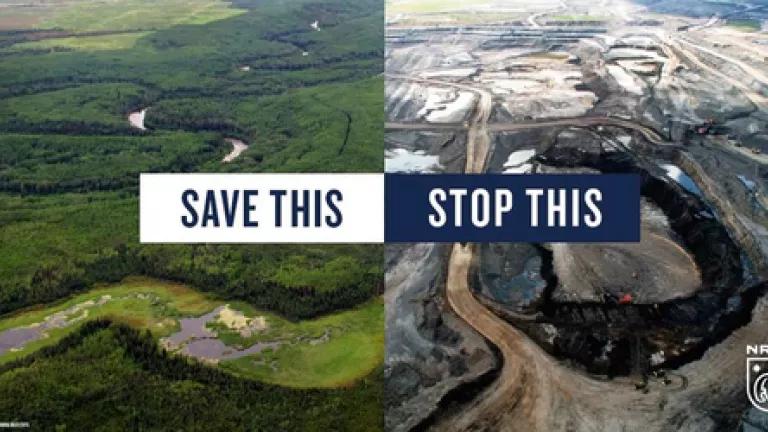
This blog was co-drafted with Michael Yamoah
On June 6th, 2015, NRDC will join dozens of our allies for the Tar Sands Resistance March in the twin cities of Minnesota. Citizens from across the Midwest will stand together to protect water, climate and our communities from the threat of dirty tar sands. The march in St. Paul is part of a growing movement across America to resist an incoming tar sands invasion in the United States. While tar sands already flows from Canada to the United States, there are proposals to greatly expand imports to the U.S. in the Midwest, and on the coasts, through an extensive network of pipelines, rail infrastructure and tankers. The potential impacts could prove catastrophic for communities across the country.

The Tar Sands Resistance March is critically important especially as this region is already ground zero for receiving the lion's share of existing tar sands oil. The march will also offer an opportunity to highlight some of the reasons why the Midwest region is vital to halting the flow of dirty oil into the U.S:
- The Midwest is a primary import zone for dirty oil from Canada. Refineries in the Midwest get virtually all of their imported oil via pipeline from Canada. The diluted bitumen transported from Canada that arrives in U.S. refineries is more corrosive than conventional crude oils and may lead to increased risk of accidents.These refineries also pose a significant risk to the climate. Refining tar sands oil emits higher levels of greenhouse gases, as such more Imports of tar sands will add to U.S. emissions.
- Various efforts are being made to expand tar sands pipelines in the Midwest to be able to process more tar sands from Canada. Enbridge, the Canadian pipeline company responsible, is using illegal schemes to double the capacity of its Alberta Clipper tar sands (aka line 67), with no public notice and also by bypassing Presidential permit process. This illegal expansion would put Alberta Clipper on par with the Keystone XL pipeline and significantly increase the amount of toxic, highly polluting tar sands crude being moved into the U.S. We must stop this from happening.
- Tar sands spills are also of major concern. In 2010, more than 800,000 gallons of tar sands was spilled into the Kalamazoo River, causing hundreds of residents to be hospitalized from adverse health effects, including cardiovascular, dermal, gastrointestinal, neurological, ocular, renal, and respiratory. Cleanup efforts are still ongoing.
- Petroleum coke, a by-product of tar sands which has resemblances of coal and shares many of coal's physical qualities, including a similar chemical composition, has been linked to a number of other health problems, including developmental and cardiovascular impacts. This is threatening communities like Chicago and Detroit. In Chicago's southeast side, massive piles of petroleum coke are found near homes, leading to black dust clouds entering the surrounding air and exposing vulnerable residents to an array of health impacts.
Increasing the amount of toxic tar sands crude flowing into this region is not in keeping with a much needed transition to clean energy. Rejecting tar sands means fighting for clean water, clean energy, and a safer climate. There is simply no place for dirty oil in America's future.
Live in the Midwest? Join us at the Tar Sands Resistance March and stand up against tar sands and for a clean and just energy future! Can't make it? No worries, you can still make your voice heard!

